Dogs have been close companions to humans for hundreds of years, thousands in some places. For many, the old saying, "a dog is man's best friend" (which should be updated to "a man or woman's) is more than a cliche, but a heartfelt feeling. Dogs can indeed be a comfort, a friend, a protector, a playmate to children, a guardian of house and property and many other things.
There are times, alas, when dogs do not seem like our best friends. At times, they can be downright scary. There isn't much you can do about other people's dogs (except avoid them if they are likely to snap at you!), but what do you do if your own dog is the one causing problems?
Aggression is the most serious problem faced by dog owners. It can take many forms. Your dog may have a problem with other dogs, with children or with just certain people or in certain environments. So, first of all, you should narrow it down and pinpoint the exact issue.
The first thing you should do is take your dog to a trusted veterinarian. This will rule out medical causes for your dog's behavior. Once this has been addressed, you should be sure to keep your dog (as much as possible) away from situations that provoke the aggressive behavior.
Don't take unnecessary chances. If your dog is a threat to people or other animals, you have to make an effort to prevent any unpleasant situations from arising. If your dog is a biter, use a muzzle until you have corrected the problem. There can be serious consequences if a dog attacks someone.
There are rare cases when the only choice is to give up the dog. This may be, for example, when you have a young child in your household or in those unfortunate cases when you have a truly vicious dog who is beyond help. But in most cases, behavioral problems, including aggression, can be corrected. One of the first remedies you can try is exercise. If a dog has too much unused energy, it can become aggressive.
A note about exercise --playing with your dog is great, but make sure you don't play too roughly and unknowingly encourage aggression. For many dogs, it's fine to play rough, but if your dog has an issue with aggression, you should not be playing in ways that foster this.
Sometimes the problem is isolation. Dogs are social animals who do not like to be left alone for long periods. Tying a dog to a stake in the ground all day is not going to make him/her happy, and in some cases it may cause behavior problems. If you are away from your dog for long periods, try to make an arrangement so the dog isn't alone all the time. At the very least, make sure the animal has some room to move around.
These are fairly basic suggestions and will often not be enough to solve the problem. The fact is, if you have an aggressive dog, or one with other serious behavioral problems, you are going to have to take some action. This means either hiring a professional dog trainer or taking some time to learn how to train your dog yourself. The first solution can be expensive, the second requires a commitment in time, as well as patience.
The issue of an aggressive dog is serious and cannot be overlooked. Fortunately, most dogs can be cured of aggression and almost any other behavioral problem. Some dogs, just like some humans, need extra help in getting past whatever problems they may have acquired.

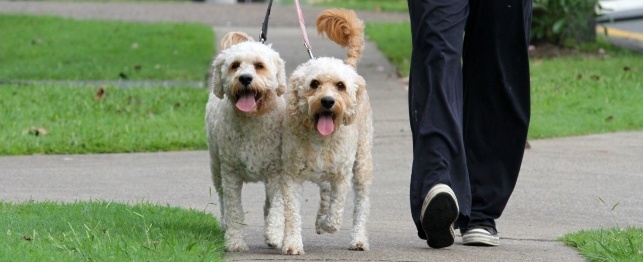 How Much Exercise Does My Dog Need?
How Much Exercise Does My Dog Need?
How Much Exercise Does My Dog Need?
How Much Exercise Does My Dog Need?
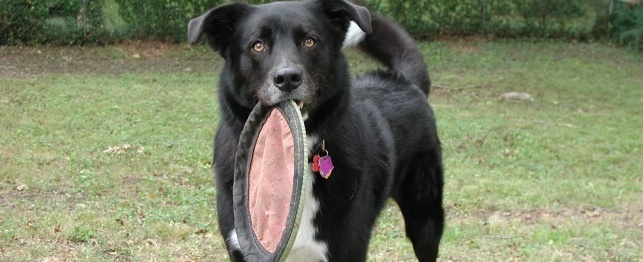 Safe Fetch Toys for Your Dog
Safe Fetch Toys for Your Dog
Safe Fetch Toys for Your Dog
Safe Fetch Toys for Your Dog
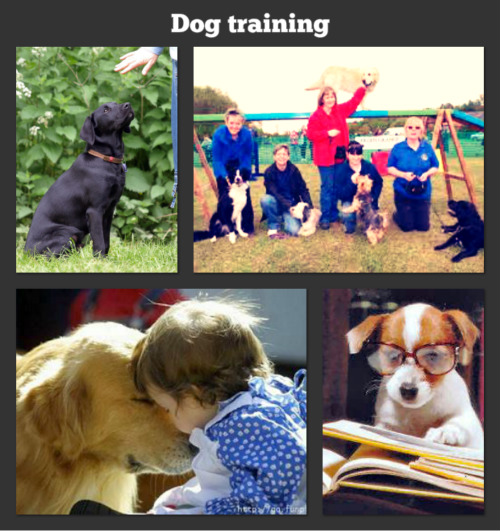 How To Use Vibration Dog Training Collars
All dogs need training at least, no matter how smart the do
How To Use Vibration Dog Training Collars
All dogs need training at least, no matter how smart the do
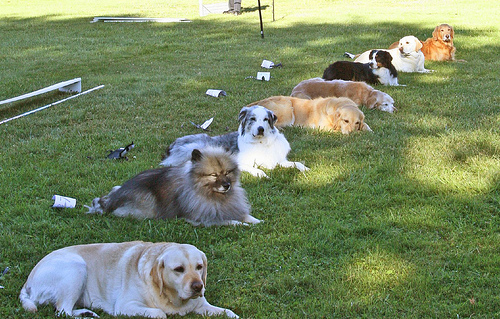 Canine Manners 101: Teaching your dog the basics of the 揝tay?Command
Teach Your Dog The "Stay" Command
Teaching your
Canine Manners 101: Teaching your dog the basics of the 揝tay?Command
Teach Your Dog The "Stay" Command
Teaching your
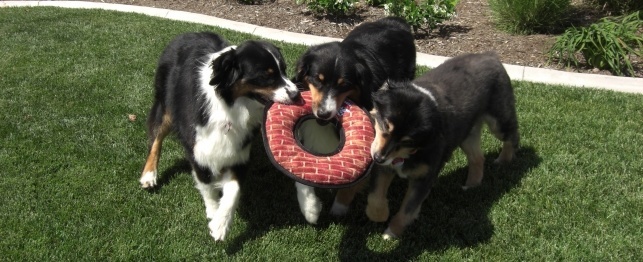 Playing Tug of War with Your Dog
Playing Tug of War with Your Dog
Playing Tug of War with Your Dog
Playing Tug of War with Your Dog